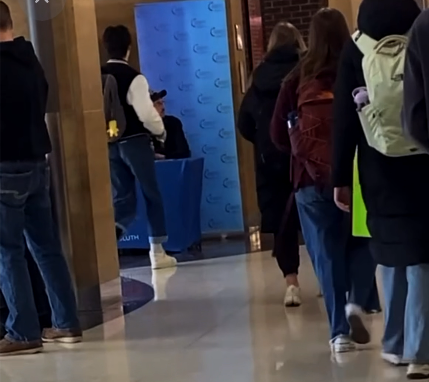DECC Exec. Dir.: $1M Line Of Credit Untouched, Year-Round Business Model Sought
DULUTH, Minn. — DECC Executive Director Dan Hartman gave an update Sunday on the venue’s struggling financing, saying he is proud to report the DECC has not used a dime of the $1 million emergency line of credit, which the city council reluctantly approved in September.
Hartman said business has picked up, and it has been strong.
The William A. Irvin’s Haunted Ship, for example, reached more than $600,000 in revenue this year compared to the $200,000 it made before Hartman took over in 2021. A new and pricier express lane and new marketing of the attraction helped, according to Hartman.
“In the past, the Haunted Ship was primarily advertised to a localized audience. And you know, October is a very busy time for leisure travel. And so, we started marketing to that audience who actually comes to visit our town. Man, that really picked everything up,” Hartman explained.
Hartman said the first and most difficult decision he had to make to address the financial ups and downs of the DECC was eliminating seven full-time positions in October.
The next step is to find ways to move away from a seasonal business model to year-round to keep staff and the bills paid, like the $100,000 monthly electric bill.
“What’s weird is that in Duluth, the summer is like the busiest time of the year for everyone and tourism, not the DECC. The DECC is actually really slow in the summer, because it’s hard to compete with our hotel rates that are pretty high in the summer. And I don’t blame the hotels, they got to charge what they got to charge. But it makes it harder for us to compete against Rochester and St. Cloud that are charging $100 room rentals. And we’re significantly higher than that. And so now you’re seeing us change the business model in the summer so that we have more leisure base activities. So we had like a Jurassic Quest thing in the summer, that went really well, the arena football coming into the summer, that’s going to be a nice use of that space, so that we can utilize that leisure travel market that’s here in town, and still utilize the building and help pay for the staff that’s still around here in the summer. So that’s part of the model change that’s going to happen is we’re just going to have to do more things year round to help make sense of all the stuff,” Hartman said.
Hartman said his team is also examining ways to train staff for multiple roles. And down the road, Hartman wants to invest in parking technology and ticket-entry technology that does not require employees.







